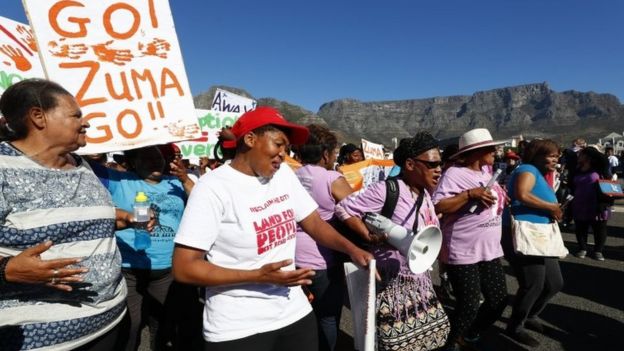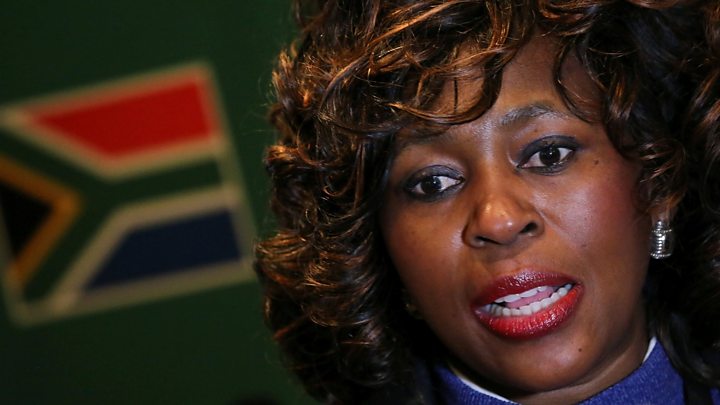
This article is more than
8 year oldBaleka Mbete made the ruling after opposition parties took the case to the Constitutional Court.
They believe that in a secret ballot, MPs from the governing African National Congress (ANC) would be more likely to vote against the president.
Mr Zuma has survived several previous votes of no-confidence.
Africa Live: Updates on this and other African news stories
Jacob Zuma: The great survivor
The ANC has governed South Africa since the end of white-minority rule in 1994, and has a huge majority in parliament.

Ms Mbete's decision took many by surprise and injects a new element of uncertainty into the proceedings against the president, reports the BBC's Nomsa Maseko in Cape Town.
The question now is whether enough ANC MPs are prepared to make a stand against the president, she adds.
Milton Nkosi, BBC News, Cape Town
The decision taken by speaker of parliament Baleka Mbete means that South Africa could have a new president by Tuesday afternoon, albeit on a temporary basis.
According to the constitution, she would take over for 30 days if President Jacob Zuma is voted out of power.
The whole country has gone into millions of frantic mini-huddles talking about what the future holds.
The general view is that the level of toxicity within the governing African National Congress is so bad that nobody knows for sure if President Jacob Zuma will survive this one.
He has survived seven previous motions of no-confidence.
Suddenly all of us have turned into political analysts and more importantly pseudo-mathematicians, trying to calculate the number of ANC MPs who are likely to vote against their party line, or as they say here, according to their "conscience".
If President Zuma is voted out power on Tuesday, he would no longer be national president but would remain ANC leader, retaining considerable influence over his replacement.
At least 50 out of the ANC's 249 MPs would need to vote against the president in order for the no-confidence motion to pass.
ANC MP Makhosi Khoza received death threats last month after she said she would vote against the president, and branded him "a disgrace".
Opposition Democratic Alliance leader Mmusi Maimane told journalists that now with the secret ballot, the ANC MPs "have no excuse".

In a statement, it added that the ANC will vote against the motion and not back the attempt to "collapse our democratically elected government".
The ANC has described the no-confidence motion as a "political ploy" designed to remove the government "outside of general elections".
This latest attempt to unseat Mr Zuma came after he fired his widely respected Finance Minister Pravin Gordhan and other ministers in a major cabinet reshuffle in March, sparking nationwide protests.
The president has also faced allegations of corruption and accusations that he has become too close to the wealthy Gupta family, who are accused of trying to influence political decisions, including the sacking of Mr Gordhan.
Mr Zuma and the Guptas have denied any wrongdoing.
Mr Zuma is due to step down as ANC leader in December. Several candidates are vying to succeed him as party leader, with the winner standing a strong chance of becoming South Africa's next president after elections in 2019.
The current favourites are deputy president Cyril Ramaphosa and Mr Zuma's former wife, and favoured candidate, Nkosazana Dlamini-Zuma.
Cyril Ramaphosa - the man who wants to make South Africa great